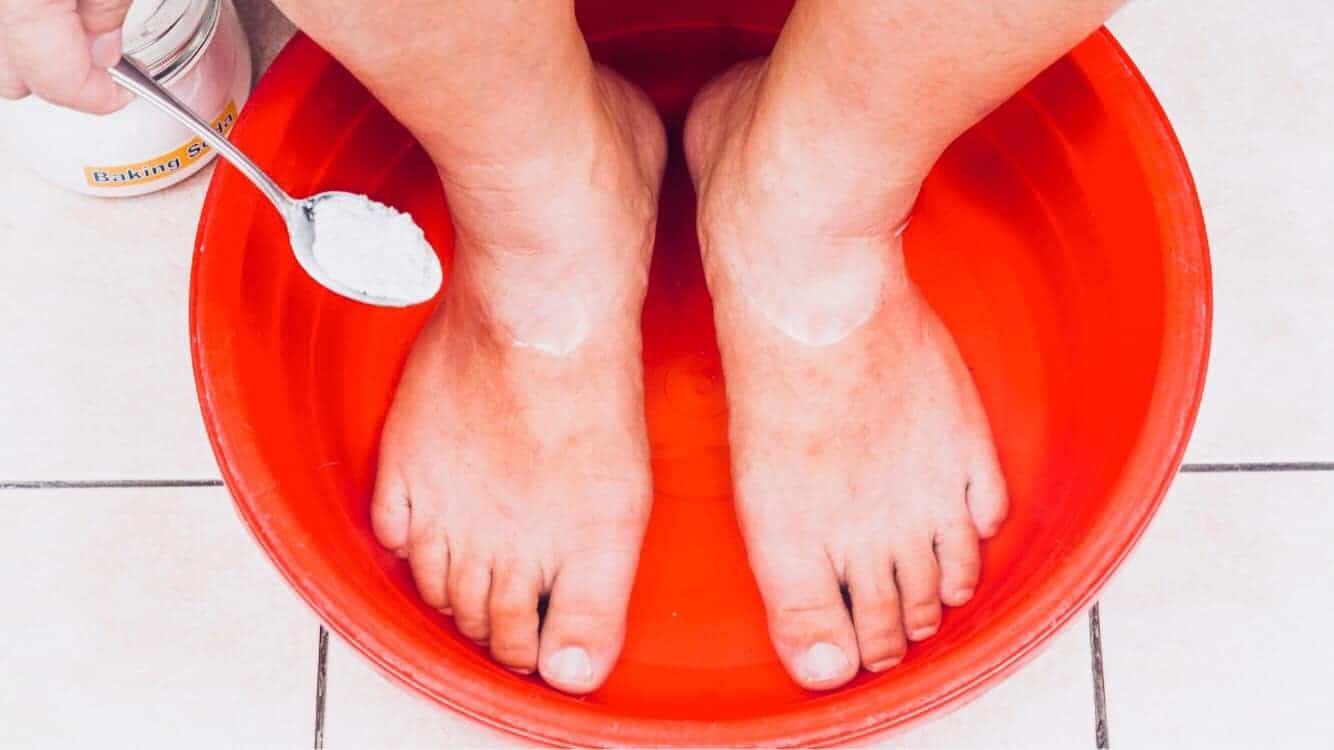Ancient medicine and healing modalities have shown us time and time again that modern medicine only solves part of the equation. There are many easy ways to get healthy naturally, all it takes is a little extra effort. Detox remedies from fasting to foot baths make us excited to share them with you for a happier, healthier life…
HERE’S HOW TO MAKE THE DETOX FOOT SOAK AT HOME TO FLUSH TOXINS:
What you’ll need:
Epsom salt: A salt distilled from mineral-rich water, Epsom salt is widely used as a beauty and wellness product. It is also widely acclaimed as a legitimate treatment for arthritis, joint pain, skin disorders, and sore muscles. Some research exists that demonstrates Epsom salts have anti-bacteria and anti-fungal properties!

Baking soda (sodium bicarbonate): Speaking of toxins, the sodium bicarbonate in baking soda can eliminate them quick, fast, and in a hurry. Aside from terminating toxins, baking soda is a known remedy for treating sore feet and killing foot odor. Dr. Oz, in a television segment devoted to foot care, discusses the benefits of baking soda/sodium bicarbonate extensively.
Castor oil: Castor oils are rich in minerals, vitamin E, and unsaturated fatty acids. In other words, it’s wonderful for pampering your feet. Also, castor oils contain potent antibacterial and anti-fungal properties. Medicinally, castor oil is widely used as a treatment for athlete’s foot.
Water: No anti-toxin would be complete without water. Consumed internally, water hydrates your skin in a way that no other synthesized chemical can. Externally, when we soak our feet, water hydrates the skin and opens the pores. The latter mechanism is important for proper absorption of the other three ingredients on this list.
“How much do I need?!”
HERE’S A BREAKDOWN OF THE AMOUNTS OF EACH INGREDIENT YOU’LL NEED FOR YOUR FOOT SOAK RECIPE:
– Castor oil: 10 drops
– Baking soda: 2 tablespoons
– Epson salt: 2 tablespoons
– Water: 5 to 6 liters
– Baking soda: 2 tablespoons
– Epson salt: 2 tablespoons
– Water: 5 to 6 liters
“WHAT DO I DO?!”
– Pour the five to six liters of water into a bowl.
– Add the baking soda, castor oil, and Epsom salt.
– Mix the ingredients just a bit.
– Add the baking soda, castor oil, and Epsom salt.
– Mix the ingredients just a bit.
After mixing all of the ingredients, soak your feet for roughly 20 to 30 minutes. Wipe your feet off with a towel, and you’re done!
Besides helping to clear our body of toxins, foot soaks are a great way to relax after a long day. The warm water hydrates your skin, soothes the muscles, and helps relieve aches and pains. All of the ingredients included in this foot soak recipe either strengthen or provide additional benefits to a traditional warm water foot soak.
A quick note on sodium bicarbonate
Baking soda, aka sodium bicarbonate, is one of the most versatile products ever made. (Seriously, if you don’t know, enter “uses for baking soda” in a Google search.)
That said, sodium bicarbonate:
1. Should not be consumed (used internally) by women who are lactating or pregnant; the same for children younger than five years and those sensitive to sodium.
2. Should not be within reach of small children.
3. Should not be applied or consumed longer than three consecutive days. Should the product cause an unforeseen side effect, discontinue use immediately.
Possible side effects of sodium bicarbonate include:
– Difficulty breathing
– Frequent urge to urinate
– Frequent headaches
– Frequent loss of appetite
– Mood changes
– Muscle pain and/or twitching
– Nervousness or restlessness
– Swollen feet or lower legs
– Unpleasant taste
– Unusual tiredness or weakness
– Frequent urge to urinate
– Frequent headaches
– Frequent loss of appetite
– Mood changes
– Muscle pain and/or twitching
– Nervousness or restlessness
– Swollen feet or lower legs
– Unpleasant taste
– Unusual tiredness or weakness
Per Drugs.com, people experience side effects of sodium bicarbonate “very rarely when this medicine is taken as recommended; they may be more likely to occur if it is taken: in large doses, for a long time, or by patients with kidney disease.”

No comments:
Post a Comment